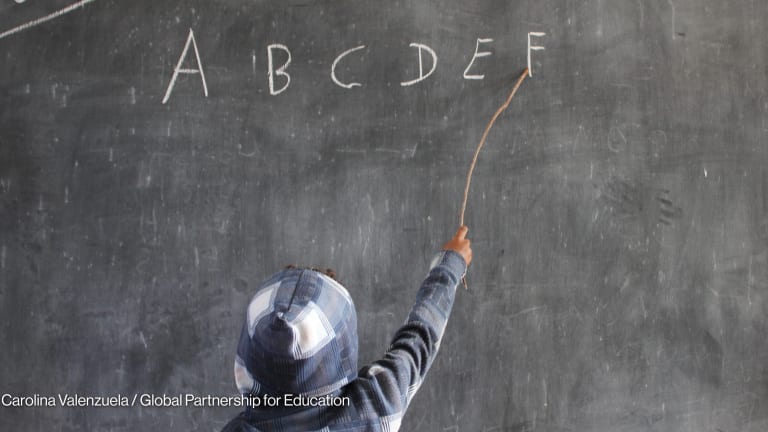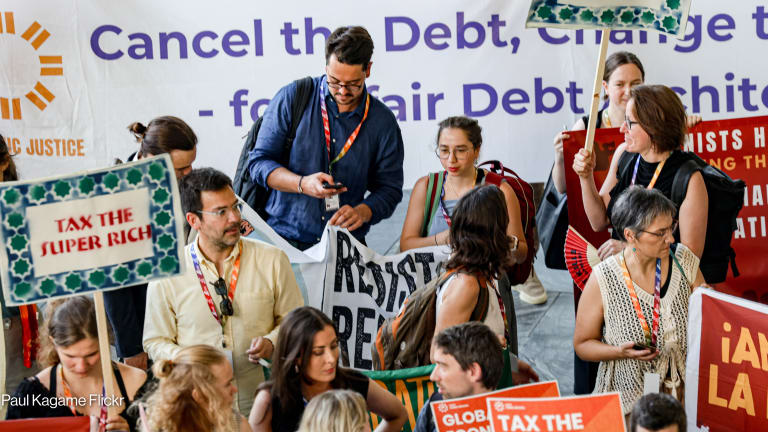
On July 9, 2011, South Sudanese around the world celebrated as their country finally gained independence after decades of war and struggle. Spirits were high, and hopes for the future even higher. South Sudan would finally get the peace and prosperity it had fought so hard to achieve.
Two years on the hope remains, although reality has set in: It is going to take a long time for South Sudan to achieve its goals. Like a marathon runner, South Sudan and its international partners need to commit for the long haul. Building health services, a professional police service, and a judicial system — along with all the other institutions needed in a modern state — can seem daunting in the best of circumstances. When only one in seven children complete primary school, and only 27 percent of people over 15 know how to read and write, the challenges can seem insurmountable.
Fifty percent of South Sudan’s civil servants are estimated to lack the appropriate qualifications for their jobs. While central institutions are often led and managed by highly qualified professionals, human resources at the state and county levels are insufficient to cover the enormous needs. To meet the gaps in the short term the U.N. is supporting deployment of civil servants from neighboring countries, in particular Ethiopia, Kenya and Uganda, across South Sudan’s ten states, transferring knowledge and skills in 19 institutions.
In the long term, overcoming the capacity gap requires huge investments in education. Encouragingly, this is on the government’s agenda; the budget presented to parliament for the 2013/14 fiscal year had education as a priority area for investment, along with health, water and infrastructure. As long as oil continues to flow, the results of such investments should be evident in the coming decades. Similar investments by the government and its international partners in healthcare are already showing results. Three million children have been vaccinated against polio and 600,000 against measles, and in the past year seven new prenatal clinics and three new maternity wards have helped extend sorely needed maternal medical care to over 500,000 women.
Education is also an area where humanitarian programs can yield long-term gains. In 2013, aid agencies are planning to reach nearly 200,000 children with emergency education, helping lay the foundation for development and increased opportunity in the country’s remaining volatile areas. Partners are working closely with the Ministry of Education to make sure this progress is sustainable, and that support is in line with national priorities and systems.
Building institutions from the ground up is not only a challenge, it is also a unique opportunity. South Sudan has the chance to get its systems right, relatively unencumbered by bureaucratic backlogs and peculiarities. It can build schools and courts which promote the participation and rights of women; it can establish a transparent and trusting relationship between citizens and leaders; and it can create a political culture of equality and solidarity, where the needs and rights of every person are seen and respected.
We know that it is possible. East Timor has enjoyed just over one decade of independence. In what was once one of the world’s largest peacekeeping and aid operations, blue helmets and emergency NGOs are gone. The focus is squarely on long-term development and foreign direct investment, both focused on job creation. There is a justice system, welfare schemes for pensioners, single mothers and veterans, a free and vocal press, and schools and hospitals run by the state.
South Sudan can achieve the same, but it will take time — at least a generation. This is not the time for quick fixes; the country needs hard work and steady dedication. Its international supporters must be steadfast and patient. The United Nations is committed to staying the course, and to stand by South Sudan for as long as it needs us. When it no longer does, we will celebrate again.
Join the Devex communityand gain access to more in-depth analysis, breaking news and business advice — and a host of other services — on international development, humanitarian aid and global health.








